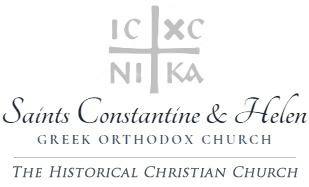The Placing of the Honorable Sash of the Most Holy Theotokos
Although the historical accounts differ somewhat, the Deposition that is celebrated today took place most likely during the reign of Emperor Arcadius (395-408), when the precious Cincture of the Mother of God was brought from Zela of Cappadocia to Constantinople, and placed in the Church of the Theotokos in the section of Chalcopratia.

